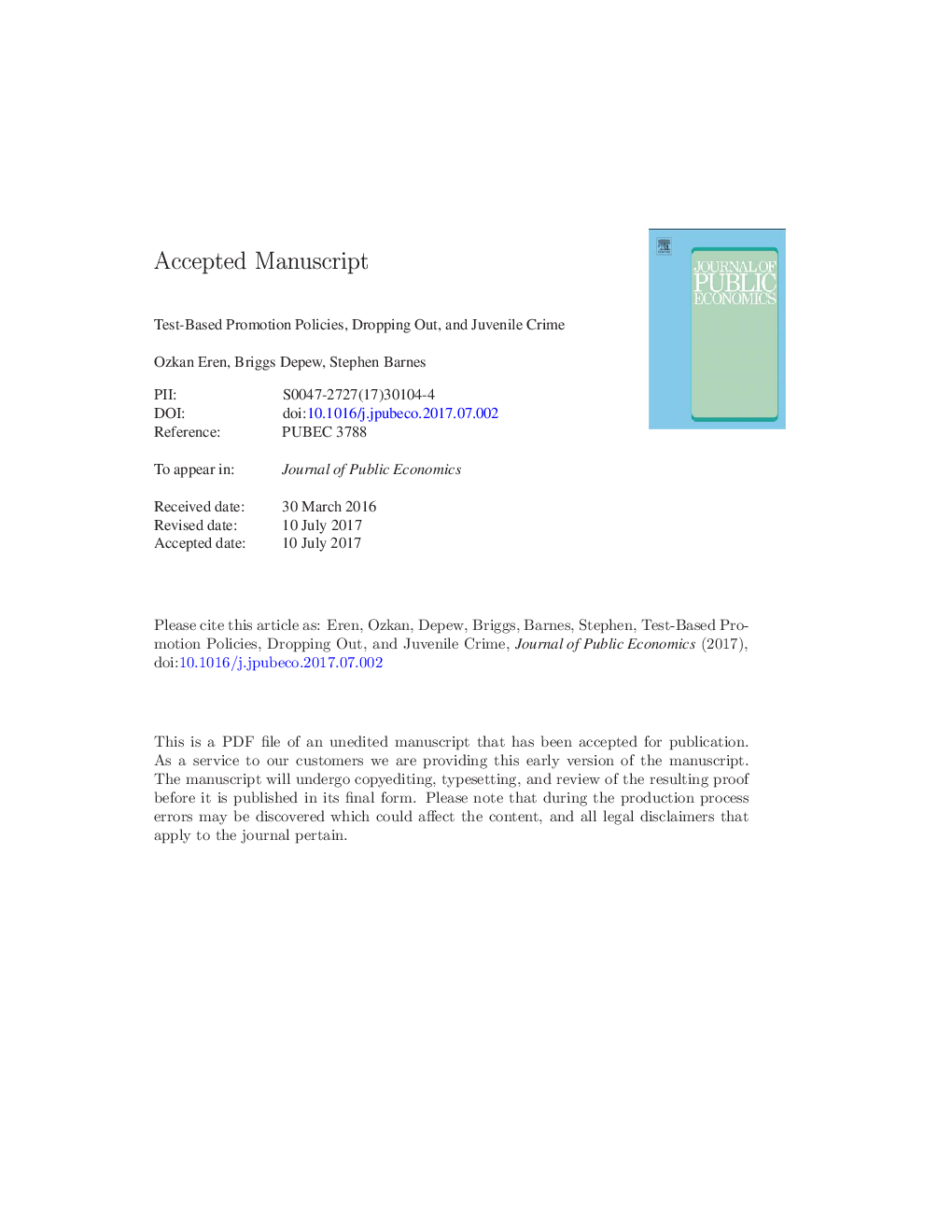| Article ID | Journal | Published Year | Pages | File Type |
|---|---|---|---|---|
| 5101781 | Journal of Public Economics | 2017 | 46 Pages |
Abstract
Over the past decade, several states and school districts have implemented accountability systems that require students to demonstrate a minimum level of proficiency through standardized tests. With many states and school districts ending social promotion, policy makers and researchers have gained renewed interest in the role of grade retention and remedial education in US schools. This paper examines the potential effects of summer school and grade retention on high school completion and juvenile crime. To do so, we use administrative data from a number of state agencies in Louisiana and a regression discontinuity design to analyze Louisiana's statewide test-based promotion policy administered to students in fourth and eighth grades. Our results indicate that potential grade retention increases the propensity of a student to drop out of school. In addition, eighth grade remedial education assignment in the form of summer school appears to provide a positive benefit by decreasing the likelihood that a student drops out. As for fourth grade students, however, we do not find any effect of summer school assignment. Finally, for eighth graders, we find that the net effect of the test-based promotion policies is to decrease the probability of being convicted of a juvenile crime.
Related Topics
Social Sciences and Humanities
Economics, Econometrics and Finance
Economics and Econometrics
Authors
Ozkan Eren, Briggs Depew, Stephen Barnes,
